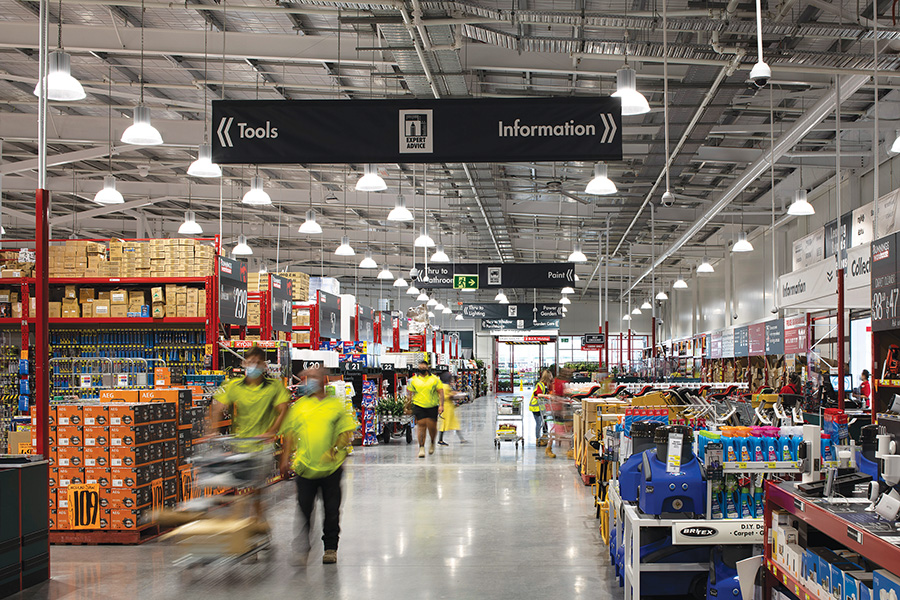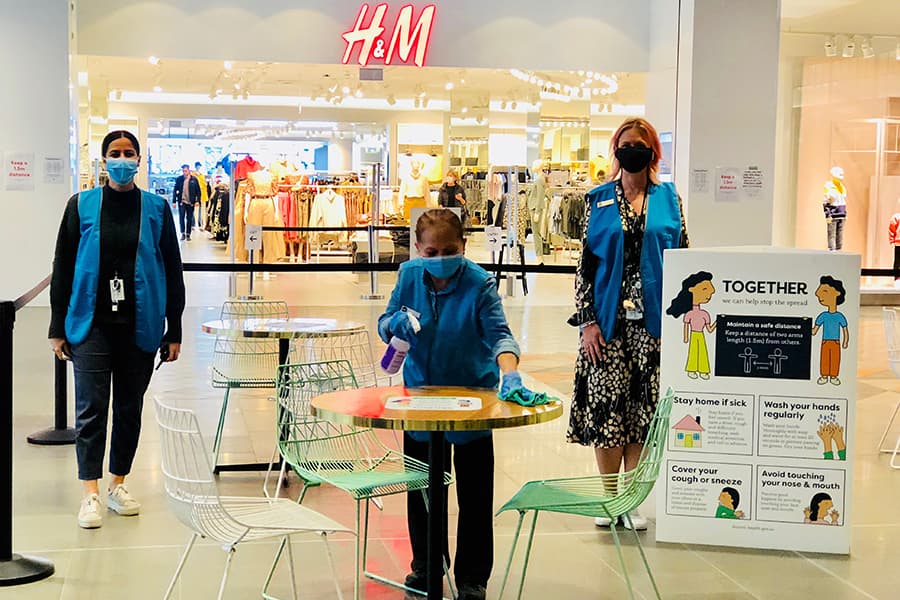The International Council of Shopping Centers has always had some difficulty with the ‘International’ bit. Back in the 1960s when the organisation was in its infancy yet growing, in terms of ‘shopping centre organisations’, it took the high ground. No one else had them. However, although the organisation blossomed, the product – the American shopping centre – didn’t develop as well as some of its contemporaries; Australia for one. The ICSC is now pulling out of China and scaling back in Asia. Milton Cockburn has an inside knowledge of the ICSC and wrote this article exclusively for SCN.
Legend has it that in 1957, when a small group of Americans met in Chicago to formalise an association to represent the fledgling USA shopping centre industry, realisation dawned that one of those present was Canadian. The new body was therefore hastily renamed as the International Council of Shopping Centers.
Since then, despite developing into one of the world’s largest trade associations, the ICSC has always struggled to give proper meaning to the letter ‘i’ in its abbreviation.
Nearly 60 years later it remains an overwhelmingly North American-centric body with about 80% of its membership residing in the USA and Canada.
Membership of its prestigious Board of Trustees, the ICSC’s overall governing body, is even more skewed with only 14% of trustees residing outside North America.
Over the last decade, however, under former CEO Mike Kercheval, the ICSC made a much greater effort to internationalise its operations and membership. The ICSC is now organised on three regions outside North America – Europe/Middle East; Latin America/Caribbean; and Asia/Pacific – with each region headed by a Managing Director. Kercheval also appointed Mike Morrissey, the former Managing Director, Europe, as Chief Global Officer, reporting directly to him.
Despite the fact that, since the global financial crisis, most of the ICSC’s membership growth has come from outside North America, the ICSC is still operating in each of these international regions at a financial loss. In the current financial year it expects to lose around $US2 million internationally, with the Asia Pacific region likely to account for around $US600,000 of this loss.
It should be noted that these operating losses ignore the contribution that international visitors make to the $US13-million profit that the ICSC banks each year from its very successful deal-making convention, RECon, held in May in Las Vegas.
Thanks largely to this huge profit from RECon, and despite the international losses, the ICSC still makes an overall operating profit each year. Last year its overall surplus was $US3 million and it holds around $US70 million in reserves. That’s a very healthy position for a not-for-profit organisation.
The ICSC’s financial position may become even healthier if a gamble it has just taken comes off. The ICSC aims to substantially grow its other annual deal-making convention, held in New York in early December. The ICSC is confident this year it will attract more than 10,000 attendees to New York and believes this event also has the potential to attract significant numbers of international visitors without cannibalising its RECon in Las Vegas.
Nevertheless the persistent operating losses outside North America have caused resentment within the Board of Trustees. Over the years there have been stories of demands by some trustees for the ICSC headquarters in New York to cut these losses.
The recent decision by the ICSC to close its Beijing office, and to retrench its five staff (including Sara Fang Horton, its Managing Director, Asia), will therefore cause alarm in Asia, including in Australia.
The ICSC’s staff in the region will now shrink to two event staff, both headquartered in Singapore, with the Managing Director, Latin America, Scott Harris, having interim oversight from New York. (Harris is a long-time ICSC staffer and an old hand in Asia.)
This action follows the departure from ICSC earlier this year of Mike Morrissey, a casualty of the retirement late last year of Mike Kercheval and the appointment of Tom McGee, a former senior executive at Deloitte, as his replacement.
The immediate reason for the closure of the Beijing office is a new law in China, operative from 1 January 2017, which the ICSC says will severely restrict its activities in China. The new law is not directed at the ICSC or similar not-for-profit bodies but these are collateral damage from the Chinese government’s desire to tighten controls on ‘social organisations’ operating in China, particularly on human rights and religious organisations.
According to the International Center for Not-For-Profit Law, the new law will give the Chinese government discretion to intervene in the internal affairs of ‘social organisations’, such as the ICSC; will impose burdensome reporting requirements; and enable invasive government monitoring and inspections.
Of major concern is the fact the ICSC says it has legal advice, both in the USA and China, that it will also prohibit the ICSC from canvasing for membership in China.
Tom McGee denies that the closure of the Beijing office and the retrenchment of staff is driven by the ICSC’s profit-and-loss statement, although the expiry of the ICSC’s office lease in Beijing appears to have accelerated the closure.
McGee says he wants the region itself to work out its needs and priorities and he promises that the ICSC will provide resources to deliver these programs. Similar reviews will apparently be conducted in each of the other international regions.
The ICSC’s Chair, Liz Holland, denies there is pressure from the Board of Trustees to scale back its international staff and activities. She points to the ICSC’s new governance arrangements under which the ICSC is now managed on a day-to-day basis by a smaller Executive Board, rather than by the unwieldy Board of Trustees.
She stresses that the ICSC deliberately included the Chairs of its Advisory Committees in the three international regions on the Executive Board so that ICSC members outside North America would have a say in the running of the ICSC.
These new governance arrangements were driven by Holland’s predecessor as Chair, Bob Welanetz, an American whose distinguished shopping centre career has involved long stints living outside North America, including in China.
Bob Welanetz is well known to Australians, particularly from his time with Lendlease, and he is a strong supporter of ICSC’s globalisation. He now heads Majid Al Futtaim Properties in Dubai.
Whatever the reason for the ICSC’s decision about its Beijing office, the fact is that its total staff in the Asia Pacific region is now one fewer than it was in 2000, and its head office is once again located in Singapore, well away from the centre of gravity in Asia.
It is also the case that a vacuum has been created by the ICSC’s withdrawal from China and the ICSC needs to ensure that other member organisations (such as Mall China and the Council of Asia Shopping Centres), as well as commercial conference and exhibition operators (such as MIPIM Asia and Trueventus), do not move quickly to fill the vacuum.
Mall China (or the Shopping Centre Development Association of Mall China, to use its formal title) has already substantially grown its annual conference over the last decade, and is now attracting significant numbers of international participants. It will undoubtedly be one of the big winners from the ICSC’s withdrawal from China.
The ICSC’s Executive Board is expected to meet early in 2017 to finalise its decisions about future resourcing of the Asia Pacific region. This will be of major interest to the SCCA given that its affiliation agreement with the ICSC is due to expire the following year.
In the meantime, however, there is now a question mark over next year’s ICSC’s Leadership Summit and Retail Connections, which has been held in Shanghai in April for the past two years, and which was showing promise as a permanent event. This has been a useful opportunity for senior shopping centre executives outside China to learn about the Chinese industry.
If this event is to continue, under the new law, it seems likely that the ICSC will need to seek the approval of a new Professional Supervisory Authority to establish a representative office, and this will then need to be registered with the Ministry of Public Security. This is obviously likely to take some time.
Alternatively the ICSC will need to cooperate with a Chinese ‘social organisation’, such as Mall China, and even this would require the approval of the Ministry of Public Security.
Irrespective of the outcome of the current review, it is difficult to envisage that the ICSC’s staff resources in Asia over the next few years will be anywhere near the level they were at the beginning of 2016.
Where do these developments leave Australia? As a country with a mature shopping centre industry, Australia (unlike most Asian countries) does not look to the ICSC for specific assistance. But Australia is in a position to provide expertise to other Asian countries through ICSC-sponsored vehicles. The Australian industry can also benefit from the networking and learning opportunities created by ICSC events, such as RECon Asia Pacific and the Leadership Summit and Retail Connections.
Australia has already played a useful role in the past few years assisting the ICSC in the region. Four Australians – Morgan Parker (now COO of Dubai Holdings), Dr Shane Taylor (CBRE Global Investors in Hong Kong), Jack Backen (Cistra/Urbis in Singapore) and Michael Baker (Retail Adviser, Sydney) – have helped drive initiatives of the ICSC’s Asia Pacific Research Committee, an area where the region lags significantly behind the rest of the world.
This committee has produced a regional shopping centre classification system which, when fully implemented, will enable proper country-to-country comparisons to be made. More needs to be done, however, to achieve greater transparency in the Asian industry and Australia is well placed to contribute further to this objective.
The SCCA, responding to a request from the ICSC, has also helped revamp the ICSC’s major event in the region, RECon Asia Pacific, which is rotated each year among different countries and which this year (in the Philippines) earned a profit.
Australians, most notably Carol Angelosanto (CEO Marketing Warehouse), and Australian companies have also played a major role in the organisation and the judging of the ICSC’s Asia Pacific Shopping Centre Awards, held each year at RECon Asia Pacific, and which this year saw a record number of entries.
More needs to be done, however. Australia can’t complain about ICSC scaling back its operations in the Asian region if we continue to largely ignore the region ourselves. This year, not counting Aussie expats, only 15 Australians attended RECon Asia Pacific, which meant most Australian companies missed out on the opportunity to investigate firsthand some of the interesting shopping centre and mixed-use developments that are occurring in Manila.
On several occasions over the past two years, requests to Australian companies to permit staff to be key presenters and panellists at RECon Asia Pacific have been turned down at senior levels on the grounds of cost and lost time. No consideration has been given to the professional development and business networking opportunities this would provide, as well as the possibility for company promotion in the region.




















